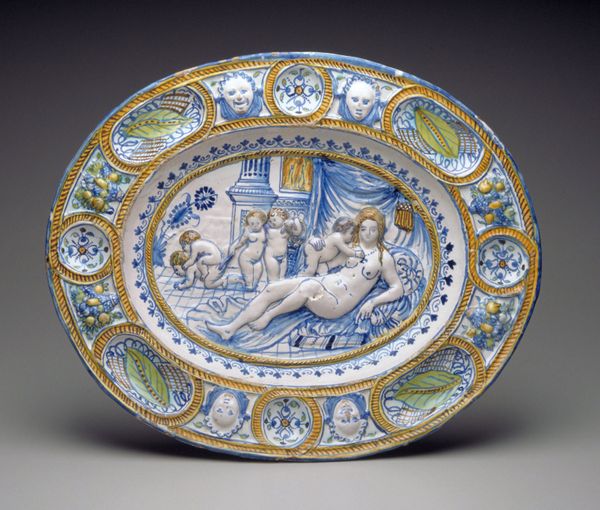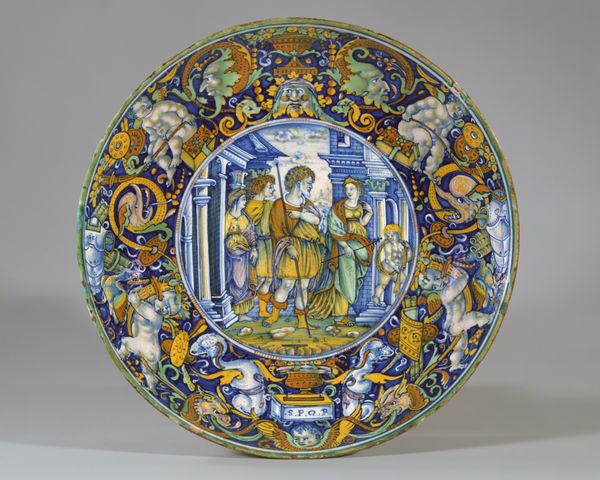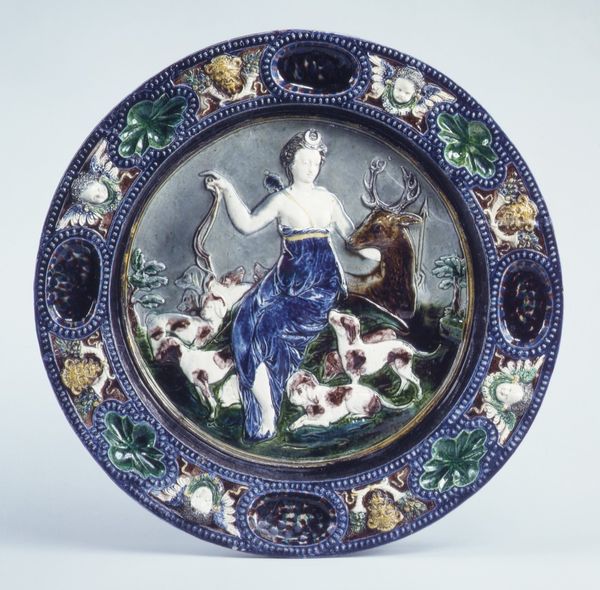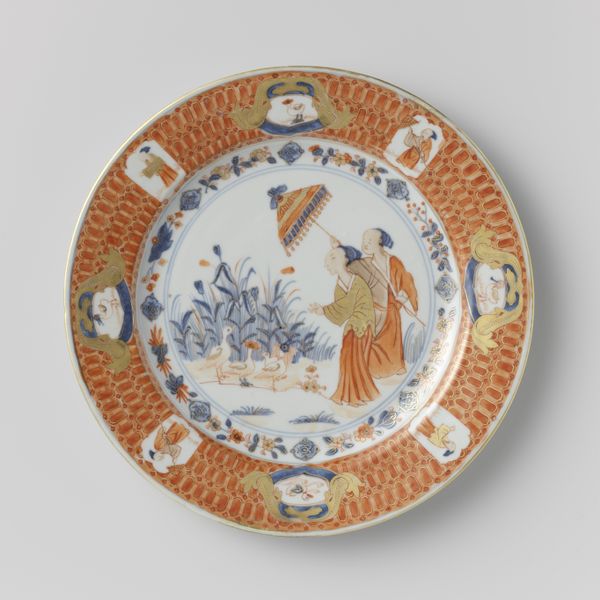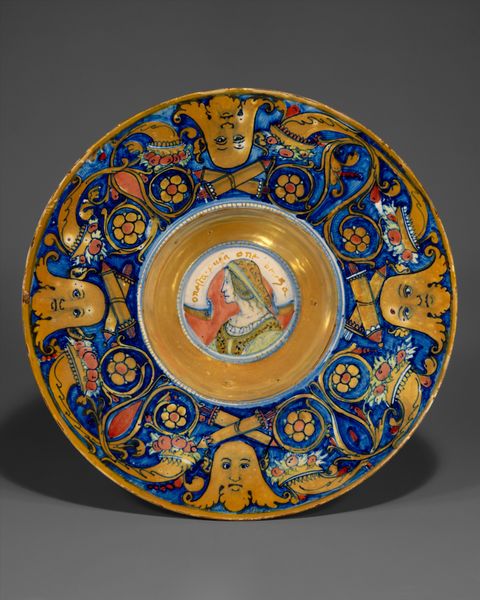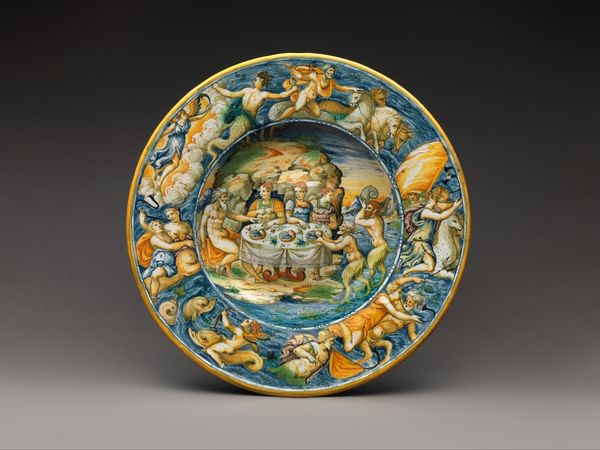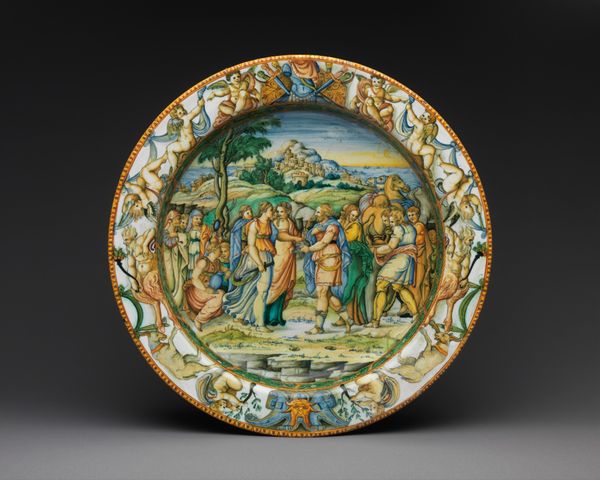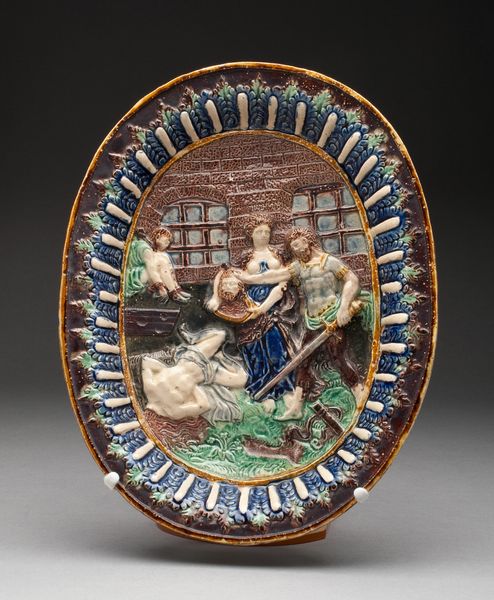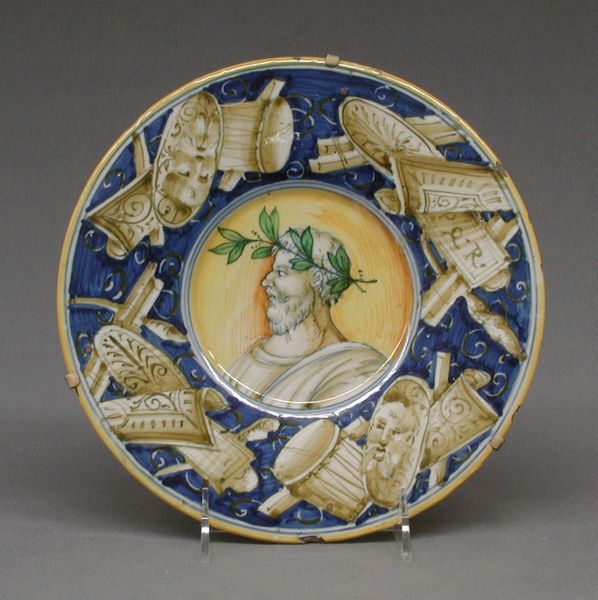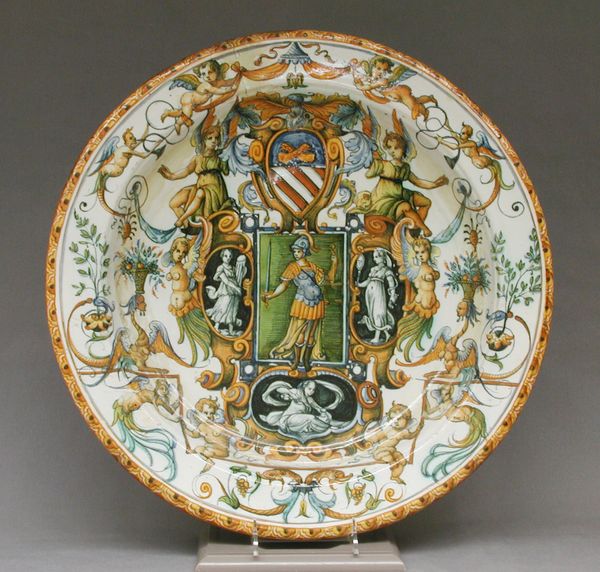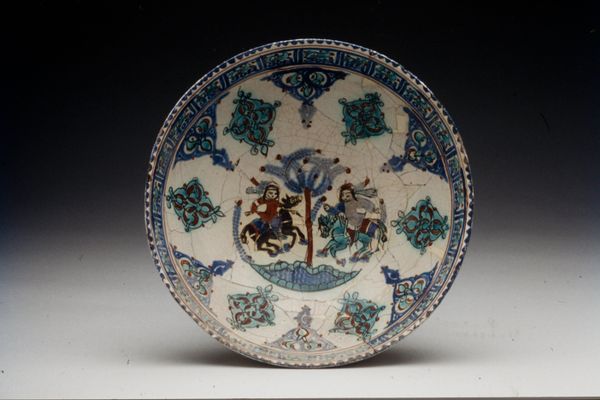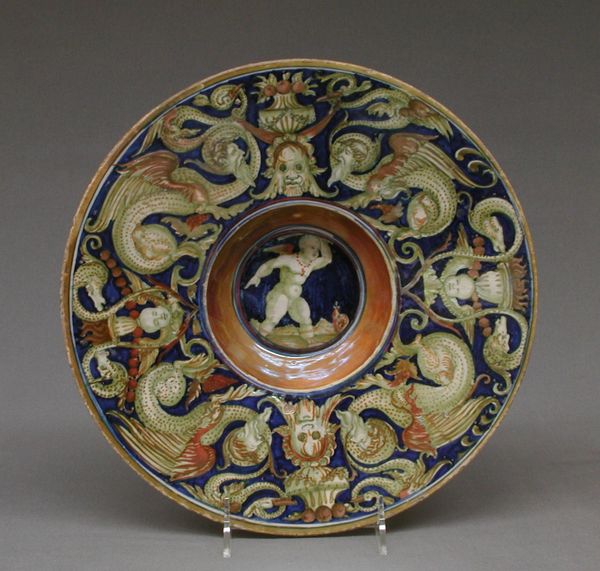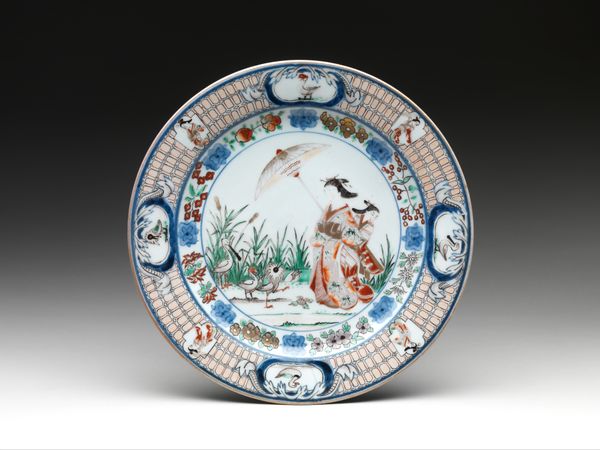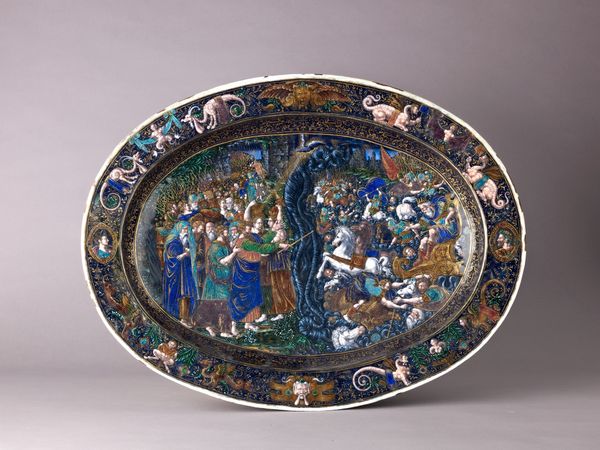
ceramic, sculpture, terracotta
#
decorative element
#
allegory
#
landscape
#
ceramic
#
mannerism
#
11_renaissance
#
stoneware
#
sculpture
#
ceramic
#
history-painting
#
terracotta
#
decorative-art
Dimensions: Overall (confirmed): 2 5/16 x 13 1/2 x 10 1/4 in. (5.9 x 34.3 x 26 cm)
Copyright: Public Domain
Bernard Palissy created this lead-glazed earthenware dish, featuring Pomona, the Roman goddess of fruit, sometime in the late 16th century. The dish reflects a renewed interest in classical antiquity during the Renaissance, but also speaks to the social and economic transformations in France at the time. The choice of Pomona, surrounded by cultivated gardens and agricultural tools, evokes a vision of idealized rural life. But this image would have resonated particularly with the French aristocracy, who were increasingly investing in land and agriculture as a source of wealth and status. Palissy himself was a Huguenot, part of a Protestant minority that emphasized individual achievement and material success. His detailed, realistic style appealed to a clientele eager to display their wealth and sophistication. To understand this artwork better, one could delve into the history of French ceramics, the rise of humanism, or the economic policies of the French court. The meaning of art is always contingent on its context.
Comments
No comments
Be the first to comment and join the conversation on the ultimate creative platform.
